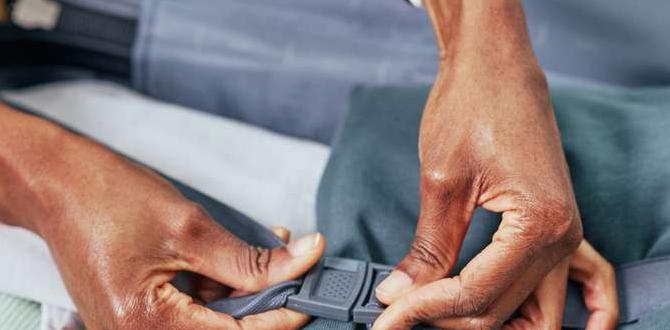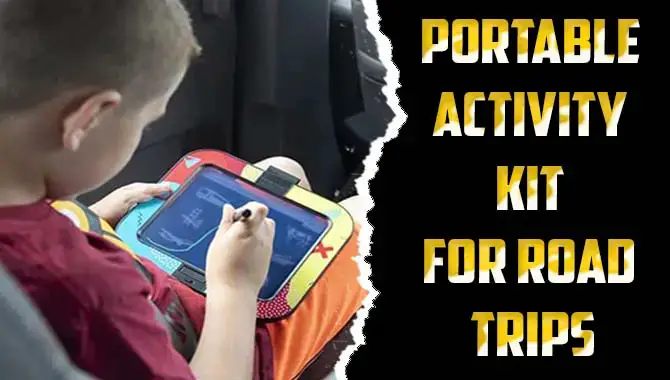Master Beirut Etiquette & Tipping with this Essential Guide: Navigate local customs with confidence, ensuring respectful interactions and smooth transactions. Understand tipping norms for restaurants, taxis, hotels, and more, making your Lebanese adventure stress-free and enjoyable for everyone.
Exploring Beirut is an adventure like no other! This vibrant city, a jewel of the Mediterranean, buzzes with ancient history, delicious food, and warm, welcoming people. But when you’re in a new place, understanding local customs can feel a bit like solving a puzzle. Knowing how to greet someone, what to wear, and especially how to handle tipping can make all the difference between a smooth trip and a slightly awkward one.
We’ve all been there, right? Wondering if you’re overpaying, underpaying, or just plain offending someone with your gesture. Don’t worry! This guide is here to demystify Beirut etiquette and tipping for you. We’ll break down everything you need to know in simple, clear steps. Get ready to explore Beirut with confidence and comfort, just like you would anything else with Journey Essentials!
Understanding Beirut’s Cultural Tapestry: Etiquette Essentials
Beirut is a city where tradition meets modernity, creating a uniquely rich cultural experience. Understanding and respecting local customs is key to truly connecting with Lebanon’s people and enjoying your visit. From greetings to guest behavior, a little awareness goes a long way.
Greetings and Interactions
Lebanese people are generally very warm and hospitable. Greetings are important and often involve physical contact.
- Handshakes: A firm handshake is common for men and women, though it’s polite to wait for a woman to extend her hand first.
- Kisses on the Cheek: Close friends and family often greet each other with kisses on the cheek, usually starting with the right cheek. As a visitor, you may be offered this gesture by someone you’ve met multiple times or who is very friendly. A polite acceptance is appreciated.
- Verbal Greetings: Common greetings include “Marhaba” (hello) and “Kayf al-hal?” (how are you?). Learning a few basic Arabic phrases will be greatly appreciated.
- Eye Contact: Direct eye contact is generally acceptable and a sign of sincerity.
Dress Code and Modesty
While Beirut is a cosmopolitan city and Western attire is common, particularly in more modern areas, dressing modestly is a respectful practice, especially when visiting religious sites or more traditional neighborhoods. This is similar to what you might consider when traveling with young children or for personal comfort and ease, ensuring you feel prepared and confident.
- For Women: Covering shoulders and knees is a good general rule of thumb. Avoid very short skirts, low-cut tops, or overly revealing clothing. A headscarf might be appreciated when entering mosques or certain churches.
- For Men: Similar to women, avoid very short shorts in public areas. T-shirts and trousers or jeans are generally fine.
Visiting Homes as a Guest
Hospitality is a cornerstone of Lebanese culture. If you are invited to someone’s home, consider it a great honor.
- Punctuality: It’s acceptable to arrive 10-15 minutes after the agreed-upon time; arriving exactly on time can sometimes put the host in a rush.
- Gifts: Bringing a small gift is a thoughtful gesture. Good options include pastries, chocolates, or flowers. Avoid bringing alcohol unless you are sure your hosts drink and are comfortable with it.
- Eating and Drinking: Accept food and drink when offered, even if it’s just a small amount. Refusing can be seen as impolite. If you have dietary restrictions, it’s best to mention them beforehand.
- Shoes: It’s customary to remove your shoes before entering a Lebanese home, so observe what your host or other guests are doing.
Public Behavior
Beirut is a lively city, but maintaining a level of decorum in public is appreciated.
- Public Displays of Affection: While not strictly forbidden, very overt displays of affection between couples might attract attention and are best avoided in more conservative areas.
- Volume: Lebanese people tend to be talkative and expressive, but try to keep your voice at a moderate level in public spaces.
- Photography: Always ask permission before taking photos of people, especially women and children, or in sensitive areas like military installations or government buildings.
Beirut Tipping Guide: Navigating Service Charges
Tipping is a customary practice in Beirut to show appreciation for good service. While service charges are often included in the bill at restaurants and hotels, an additional tip is usually expected for exceptional service. Understanding these nuances will ensure you’re tipping appropriately and comfortably.
Restaurants and Cafes
Tipping in restaurants is common, and there’s usually a service charge included in the bill, often around 10-11%. However, it’s customary to add a little extra for great service.
| Location | Standard Tip | Exceptional Service Tip |
|---|---|---|
| Mid-range to High-end Restaurants | 10-15% (if service charge not included) Or 5-10% on top of included service charge | Add an extra 5-10% |
| Casual Cafes/Snack Bars | Round up the bill or leave a small tip of around 5% | A few thousand Lebanese Pounds (depending on the bill size) |
Important Note: Always check your bill. Many establishments will clearly state “Service Included” or “Service Charge.” If it is included, the additional tip is entirely at your discretion and based on your satisfaction.
Taxis and Ride-Sharing
Tipping taxi drivers in Beirut isn’t as strictly defined as in some other destinations, but it’s a good practice to acknowledge good service.
- Negotiate the fare: For metered taxis, ensure the meter is used. If it’s a non-metered taxi, agree on the fare before your journey begins.
- Short Rides: For short rides, rounding up the fare to the nearest convenient amount (e.g., 1,000 or 5,000 LBP) is a common practice.
- Longer Rides or Good Service: For longer distances or if the driver was particularly helpful (e.g., assisting with luggage, offering insights), a tip of 10% of the fare is generous and appreciated.
- Ride-Sharing Apps: If you’re using apps like Uber or Careem (if available), tipping can usually be done through the app. A tip of 10-15% is standard for good service.
Hotels
Hotel staff in Beirut are generally very professional and helpful. Tipping is a way to show your gratitude for their services.
- Bellhops/Porters: For each bag they carry, tip approximately 1-2 USD or 10,000-20,000 LBP.
- Housekeeping: Leaving around 5-10 USD or 50,000-100,000 LBP per day for the cleaning staff is a good gesture, especially if you’ve had a pleasant stay. You can either leave it on the pillow or desk each day, or at the end of your stay, clearly marked as a tip.
- Concierge: If a concierge goes out of their way to make special arrangements or bookings for you, a tip of 10-20 USD or 100,000-200,000 LBP is appropriate, depending on the complexity of the request.
- Room Service: If a service charge is not already included in the delivery fee, tip 10-15%.
Other Services
There are several other services you might encounter where tipping is customary.
- Tour Guides: If you hire a private guide, tipping 10-15% of the tour cost is standard for excellent service. For group tours, a daily tip of 5-10 USD (40,000-80,000 LBP) per person is appreciated.
- Hairdressers/Barbers: Tip 10-15% for a haircut or styling service.
- Spa Therapists: As with hairdressers, 10-15% is customary for spa treatments.
- Valet Parking: A small tip of 2-5 USD (20,000-40,000 LBP) is appreciated when they retrieve your car.
Navigating Beirut’s Currency and Payment Methods
Understanding the local currency and how payments are handled will make your transactions smoother. Lebanon uses the Lebanese Pound (LBP), though the US Dollar is widely accepted and often preferred for larger transactions. It’s wise to have a mix of both.
Lebanese Pound (LBP)
The official currency is the Lebanese Pound, but due to economic fluctuations, there are often distinct exchange rates for official transactions and street rates for cash. Be aware of current rates. ATMs dispense LBP, and smaller denominations are useful for everyday purchases and tipping.
US Dollar (USD)
US Dollars are widely accepted in many establishments, especially hotels, larger restaurants, and shops. Prices might be quoted in USD. Keep small USD bills handy for convenience.
ATMs
ATMs are available in most urban areas and dispense Lebanese Pounds. Check with your bank about international transaction fees before you travel. For instance, before a trip, you might research travel-friendly credit cards or debit cards that minimize foreign transaction fees, much like you’d research the best carry-on luggage for easy access.
Credit Cards
Major credit cards (Visa, Mastercard) are accepted in many hotels, larger restaurants, and department stores. However, it’s always a good idea to carry cash, as smaller establishments or more traditional services may only accept LBP or USD cash.
Handling the Bill
When the bill arrives, check if a service charge is included. If it is, you can still add a bit more for excellent service. If not, calculate your tip based on the total amount. When paying with cash, be clear whether you are paying in LBP or USD.
Special Considerations for Travelers
As a traveler, especially if you’re managing specific personal needs or traveling with family, a few extra considerations can enhance your comfort and peace of mind in Beirut.
Comfort and Personal Care
Travel should be about enjoyment, not discomfort. For anyone who needs them, managing personal care items like adult diapers or child diapers is paramount for stress-free journeys. Many travelers find that packing discreet, comfortable options allows them to focus on the experience, whether it’s a long flight to Beirut or exploring the city’s ancient ruins.
Major pharmacies in Beirut will stock general personal care items, but bringing your preferred brands from home, especially for specialized needs like overnight absorbency or discreet designs, can prevent worry. This preparedness is a key part of our philosophy at Journey Essentials – ensuring you have what you need to travel with confidence, no matter the destination or duration.
Religious Site Etiquette
Lebanon is a diverse country with significant religious heritage. When visiting mosques, churches, and other religious sites:
- Dress Modestly: As mentioned earlier, cover shoulders and knees. Some sites may require women to cover their heads. Scarves are often available to borrow or purchase outside major sites.
- Silence and Respect: Maintain a quiet and respectful demeanor. Avoid loud conversations or disruptive behavior.
- Photography: Be mindful when taking photos. Avoid photographing people during prayer times or without their explicit consent.
Navigating Public Transportation
While taxis and ride-sharing are common, Beirut also has microbuses (service taxis) which are a very local and affordable way to get around. These are shared taxis that run on fixed routes. You pay the driver when you get off. Etiquette here is minimal, but keep your items secure and be prepared for a lively, crowded experience!
Safety and Awareness
Beirut is generally a safe city, but like any major urban center, it’s wise to be aware of your surroundings. Keep valuables secure, avoid displaying large amounts of cash, and be cautious in crowded areas to prevent petty theft. For up-to-date travel advisories, always consult your country’s official foreign travel advice service, such as the U.S. Department of State’s country information pages for Lebanon.
Conclusion
Navigating the etiquette and tipping customs of a new city like Beirut can seem daunting, but with a little knowledge, it becomes an enjoyable part of your travel experience. From polite greetings and respectful attire to understanding service charges and appropriate gratuities, these practices are all about showing appreciation and fostering positive interactions.
Remember that Lebanese culture is built on warmth and hospitality, and your efforts to engage respectfully will be met with genuine warmth in return. By following this guide, you’re equipped to handle common situations with ease. Whether you’re enjoying a delicious meal, taking a taxi, or staying in a hotel, these tips will help ensure your transactions are smooth and your interactions are pleasant.
As you explore the captivating streets, ancient sites, and vibrant souks of Beirut, carry this newfound confidence with you. Enjoy every moment, savor the incredible food, and embrace the generous spirit of the Lebanese people. Your journey to Beirut is set to be a comfortable, memorable, and truly enriching adventure!
Frequently Asked Questions
Q1: Is it rude to not tip in Beirut if a service charge is included?
No, it is not considered rude if a service charge is included and you choose not to tip extra. The included service charge is seen as payment for the staff. However, leaving a small additional tip for outstanding service is always a appreciated gesture.
Q2: Should I tip in US Dollars or Lebanese Pounds?
Both are generally accepted, especially for larger tips. For smaller tips or rounding up, Lebanese Pounds are convenient. It’s a good idea to have a mix of both currencies. If you are paying in USD, ensure you have smaller bills readily available.
Q3: How much should I tip a taxi driver for a short ride within Beirut?
For a short ride, simply rounding up the fare to the nearest convenient amount (e.g., 1,000 or 5,000 LBP) is common and appreciated. You don’t need to tip a large percentage for a very short journey.
Q4: What if I receive poor service in a restaurant?
If you receive genuinely poor service, you are not obligated to tip, especially if the service charge isn’t included. You might also consider speaking with the manager to address your concerns directly. However, for service that is just okay, a minimal tip might still be appropriate.
Q5: Do I need to tip for street food or small market purchases?
Tipping is generally not expected for very small, casual purchases like street food or at local markets. A friendly attitude and a smile are usually sufficient. If the vendor goes out of their way to help you, a very small gratuity is optional.
Q6: Is it okay to haggle prices in Beirut?
Haggling is common and expected in souks (markets) and for non-fixed price items like souvenirs. However, it is not appropriate to haggle in established shops, supermarkets, or restaurants where prices are clearly marked or a service charge is already included.
Q7: How much should I tip housekeeping if I’m staying for a week?
For a week-long stay, a tip of 5-10 USD (40,000-80,000 LBP) per day for housekeeping is a generous amount. You can leave this daily or as a lump sum at the end of your stay, clearly marked as a tip.






